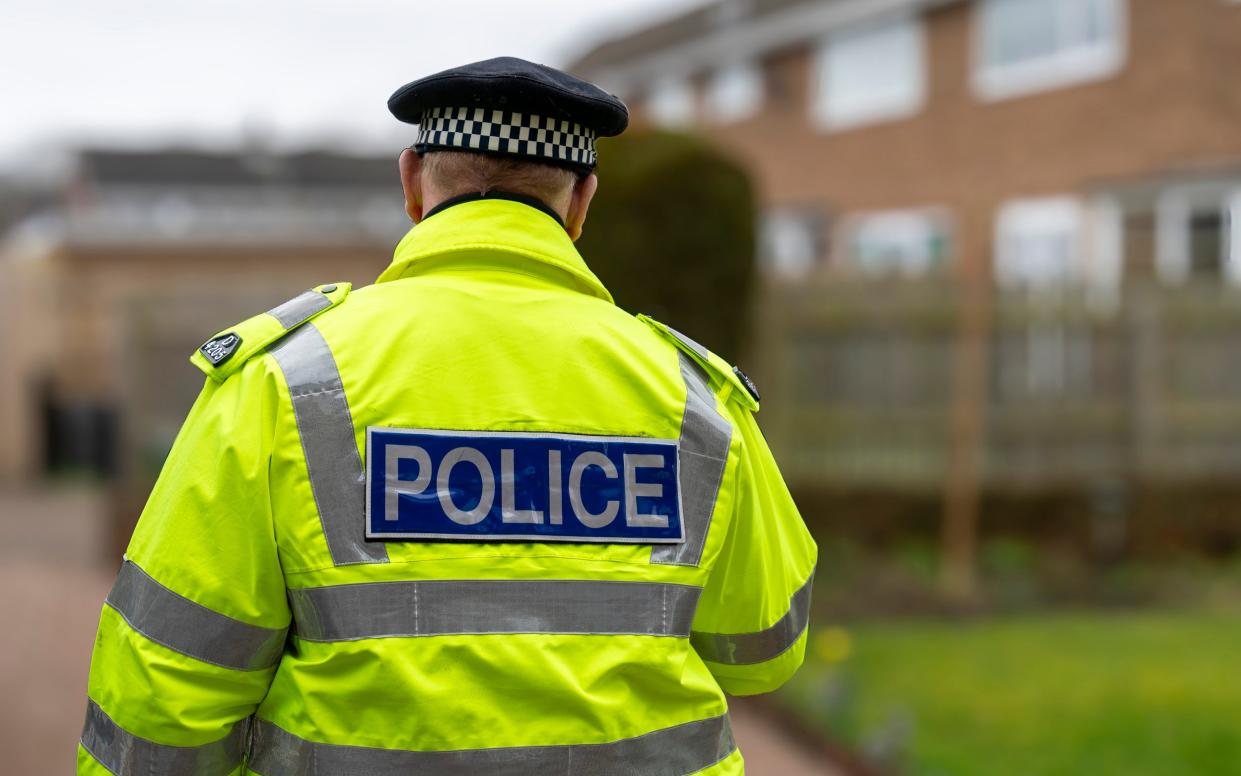Police urged to stop and search children as young as 10 to counter knife attacks

Police have been urged to stop and search children as young as 10 as record numbers aged under 16 are being taken to hospital following knife attacks.
Children aged under 16 accounted for more than a quarter (27.1 per cent) of teenage admissions to hospital to treat knife wounds, the highest proportion on record and up from 19.4 per cent a decade ago.
Almost one in 20 (4.6 per cent) of knife assaults leading to hospital treatment involved children aged under 16, also a record high and nearly double the rate of 2.4 per cent a decade ago.
The disclosure comes after the conviction of two 12-year-old boys armed with a machete for the murder of 19-year-old Shawn Seesahai in Wolverhampton park in November 2023.
They are thought to be the youngest killers convicted since the murder of the toddler James Bulger in Merseyside in 1993 by Robert Thompson and Jon Venables, who were both 10 years old at the time. The killers of Seesahai, who were not known to him, cannot be named because of their age.

Knife crime nationally has risen by 7.2 per cent to nearly 50,000 offences, close to the past record high of 51,200, according to the Office for National Statistics.
One in four police forces including the West Midlands and the Metropolitan Police recorded their highest-ever knife crime rates in 2023. West Midlands saw an 8 per cent increase in its rate from 167 to 180 offences per 100,000.
Rory Geoghegan, a former No 10 policy adviser and former police officer, said the government needed to “get serious” about supporting police officers to use stop and search and provide “serious and meaningful” criminal justice consequences for those caught with knives.
He said they should not be deterred by age. “Too many of our politicians and policymakers have succumbed to the idea that children are always the victims. They would rather find excuses for criminal conduct than robustly confront it,” said Mr Geoghegan, founder of the Public Safety Foundation.
“We need to see more knife-carrying teenagers being searched, arrested and charged. Our institutions and politicians need to remember that the age of criminal responsibility is 10 years old for good reason. Infantilising teenagers in the belief that this makes them safer is entirely counter-productive.”
Of those aged under 16 hospitalised as a result of a knife attack, nearly four in 10 (38 per cent) were between 10 and 14. In the past two years some 19 children aged under 10 had to be treated in hospital for knife wounds.
Rick Muir, director of the independent Police Foundation, said: “This reflects a deliberate strategy by organised criminal gangs to recruit younger children into county lines activity. These children and young people are doing the most dangerous work, and are therefore highly exposed to reprisals and conflict between groups.”
Homicides involving children aged 17 and under have remained high with 32 murdered in the year ending March 2023. This was down from 37 in the previous year, but still the second highest on record.
Research shows one in 20 children aged 12 or over says they have carried a knife outside their home amid fears that they could be victims of violence.
The study involving nearly 10,000 young people by the Ben Kinsella Trust found 4.83 per cent of the children had carried a knife, equivalent to more than 250,000 if scaled up nationwide. Nearly 10 times as many (41 per cent) said they knew someone who had carried a weapon.
Even among younger children, nearly one in 100 of those aged 10 and 11 also admitted they had carried knives, equivalent to about 12,000 primary school children if translated nationwide.
One in six of the primary age children said they knew someone who had left their home armed with a knife and 18 per cent of 10 year-olds and 20 per cent of 11 year-olds said they had thought about carrying a blade amid fears over their personal safety.

 Yahoo News
Yahoo News 
